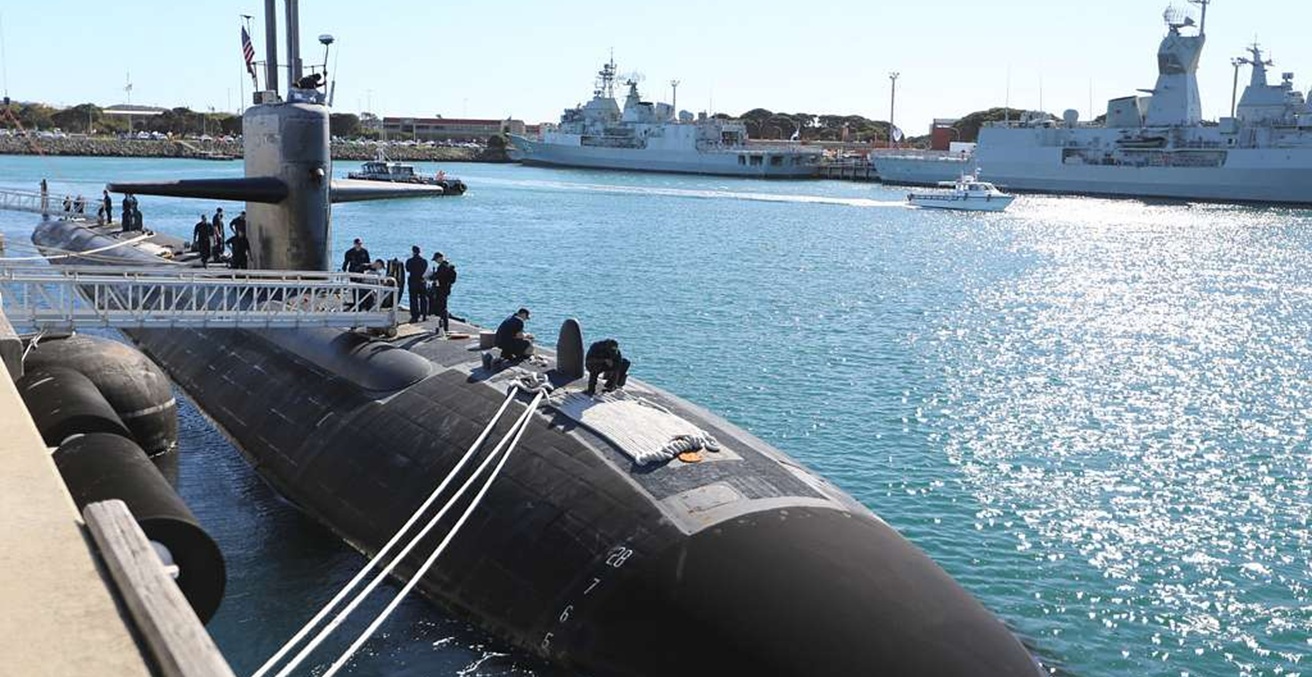A close look at the major parties’ election platforms is one of the best approaches to assess whether international anarchy will intensify after the US presidential election. Who wins will have implications for the whole world.
Elections in the United States will take place on 3 November 2020 to select the most powerful political leader in the world. Although the geographical scope of this election is confined to the physical boundary of the US, the effects of this election are certainly global, since the incoming president of the global hegemon will shape post-COVID-19 economic recovery, the future direction of the US-China trade dispute, the global war on terrorism, the wars in Iraq and Afghanistan, the Middle East peace process, and the future of NATO, the United Nations, World Bank, International Monetary Fund, World Health Organization, UN Human Rights Council, and many other regional and international institutions. For this reason, the whole world is interested in what is happening in every US presidential election, which international issues presidential candidates are placing emphasis, who might win the election, and what geo-economic, geopolitical, and geostrategic issues will look like.
In their election platforms, both presidential candidates – Donald J. Trump, the incumbent president and Joe Biden, the former vice-president – and their political parties respectively have presented their worldviews about how the US should retain its global leadership position. The incumbent Republican Party agreed on 10 June 2020 to adopt the same 66-page platform that was used in the 2016 presidential election, while the Democratic Party published its 92-page platform, divided into 11 sections, on 27 July 2020. Both parties have explained their foreign policy preferences in the final sections of their platforms.
57 percent of American voters think foreign policy is “very important,” so how does Trump differ from Biden in talking about international politics? Who is the hawk, and who is the dove? Let us consider only the platforms of both parties for this discussion, leaving aside survey results and other studies. Taking an offensive realist stance, Trump and his party define the current state of the world as “dangerous” and “increasingly dangerous” due to diverse sources of national security threats, from terrorism to aggressive political approaches of the world’s major powers. By contrast, Biden and his party characterise the current state of the world as “competitive” and “increasingly more competitive.” Both parties derive their foreign policy preferences from their starkly different worldviews. The Republican Party strongly advocates for “America First,” national security first, preservation of world peace through strength (Regan’s model of peace), standing with allies and standing against foes, and retaining the US’ position as the global moral leader. On the other hand, the Democratic Party has expressed its American-value-based foreign policy preferences that include revitalisation of American diplomacy to compete in a more contested world and ensuring the US’ position as the principal force of global peace and security, in addition to the revitalisation of alliances, partnerships, and international institutions to meet the common challenges of mankind.
In addition, both parties hold different views about how to achieve their foreign policy goals. The Republican Party emphasises hawkish strategies such as increasing defence spending, enhancing border security, modernising nuclear weapons and military procurement systems, the development and deployment of multi-layered ballistic missile defences, and abandoning arms control treaties which amplify the military power of enemies. In contrast, the key priorities of the Democratic Party include reformation of the State Department, recruitment of a new generation of Americans who want to serve the country abroad, enhancement of national security through reinventing alliances and partnerships, and the use of diplomacy and law enforcement tools in lieu of occupying other countries and overthrowing their governments.
Both parties have identified in their platforms common foes such as China, Russia, Iran, North Korea, Syria, and ISIS, and common friends like Israel, Australia, Japan, South Korea, India, and NATO. But they have taken different stances on how to deal with foes which threaten the security and interests of the US and its allies. For instance, the Republican Party puts its emphasis on greater coordination with NATO to prevent a resurgent Russia, but states that all member-states of this multilateral military organisation must bear the costs of their security, as per the multilateral agreement. On the contrary, the Democratic Party asserts that it “will reaffirm America’s commitment to NATO and defending our allies. We will maintain transatlantic support for Ukraine’s reform efforts and its territorial integrity.” It is evident that both parties want to keep the NATO alliance, but they have different worldviews about how NATO should work. A similar clash of ideas is also apparent with regards to China. The Republican Party is more likely to pursue hawkish policies, while the Democratic Party wants to address the China issue without resorting to a unilateral trade war or instigating another destructive cold war.
Could we, then, expect increased international anarchy if the hawkish Republican Party wins in the election again? The simple answer is “yes,” as evidence demonstrates that the Trump administration has increased bombing in Afghanistan, the longest war in US history, and killed leaders of ISIS and the top-ranked commander of the Iranian elite forces, in addition to supporting the Saudi-led war in Yemen and threatening to attack North Korea and Venezuela. On the other hand, the US and China will undoubtedly fall into a protracted “Thucydides Trap” and possibly an all-out war around several fault lines of geopolitics, such as Taiwan and the South China Sea, if Trump is reelected. Moreover, Trump, who believes in “America First” and “military superiority” will increase military spending and withdraw from international arms control treaties that might spark an arms race between the US, Russia, China, North Korea, and Iran, despite his promise to sign a nuclear deal with Iran if he won a second term.
How convincing is the claim about increased international anarchy upon the electoral victory of the hawkish party? Existing scholarly literature, which focuses on how the international conflict behaviour of states is linked to the political ideologies of governments, has shown that left-wing governments are more likely to be dovish, while right-wing governments are more likely to be hawkish. For instance, one study finds the initiation of conflicts increases by 50 percent if right-wing parties form the government. Similarly, the likelihood of military conflicts increases twofold when right-wing parties come to power. Drawing insights on previous studies, I argue that international anarchy might dominate the rule-based international system if the right-wing Republican Party defeats the left-wing Democratic Party in the election.
To conclude, this presidential election is not only an opportunity for American voters to decide which party will run their country for the next four years, but it also presents a difficult choice between international anarchy and international stability for the whole world in a broader sense. Considering the ongoing global pandemic, which has already deepened world economic recession, the world requires an American president who will repair the broken global economy and tension-torn global politics through diplomacy, dialogue, and global partnership.
Anurug Chakma is a PhD candidate in the School of Politics and International Relations at the Australian National University. Prior to commencing his PhD program, he was an Assistant Professor in the Department of Peace and Conflict Studies at the University of Dhaka. He can be reached at: anurug.chakma@anu.edu.au
This article is published under a Creative Commons Licence and may be republished with attribution.




